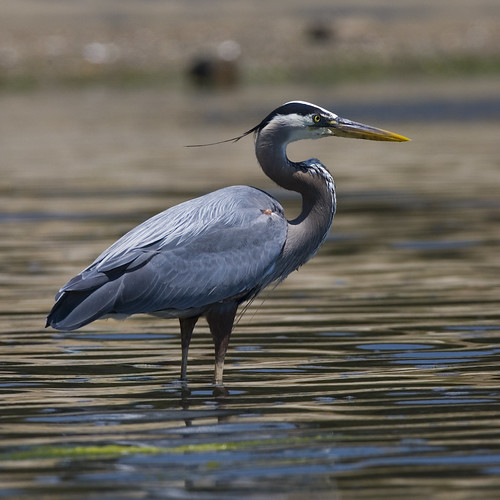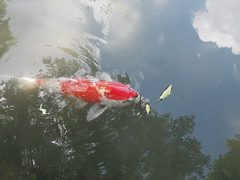It’s unusual for the heron to be around still at this time because most herons migrate south for the winter. Usually herons migrate because they rely on fish for food and when the water freezes they cannot eat them anymore. However, the water in our pond is always running and never freezes and that’s why our heron stays. Some herons will stay in the same place year round if the weather is warm enough. Herons also eat frogs, salamanders, lizards, snakes, young birds, small mammals, shrimp, crabs, crayfish, dragonflies, grasshoppers and many aquatic invertebrates.
Koi are the most popular fresh-water ornamental pond fish and are often referred to as being “living jewels” or “swimming flowers”. Koi are a variety of the common carp, Cyprinus Carpio. Carp fossils have been discovered in South China dating back about 20 million years. Some varieties are known for their hardiness, which records claim can live for long periods of time if simply wrapped in wet moss continuously kept damp. Some authorities believe Koi originated in Persia and spread throughout the ancient world. Our smallest Koi are 2-3 inches and our biggest one are 19 or 20. We have orange and white fish and now that they mated we have mixed colors.
Information on Great Blue heron

Great Blue Heron
By mikebaird
